Visual cortex
Recent articles
Infant visual system categorizes common objects by 2 months of age
Brain activity patterns in the ventral visual cortex appear to distinguish images across 12 categories, including birds and trees, longitudinal functional MRI scans suggest.
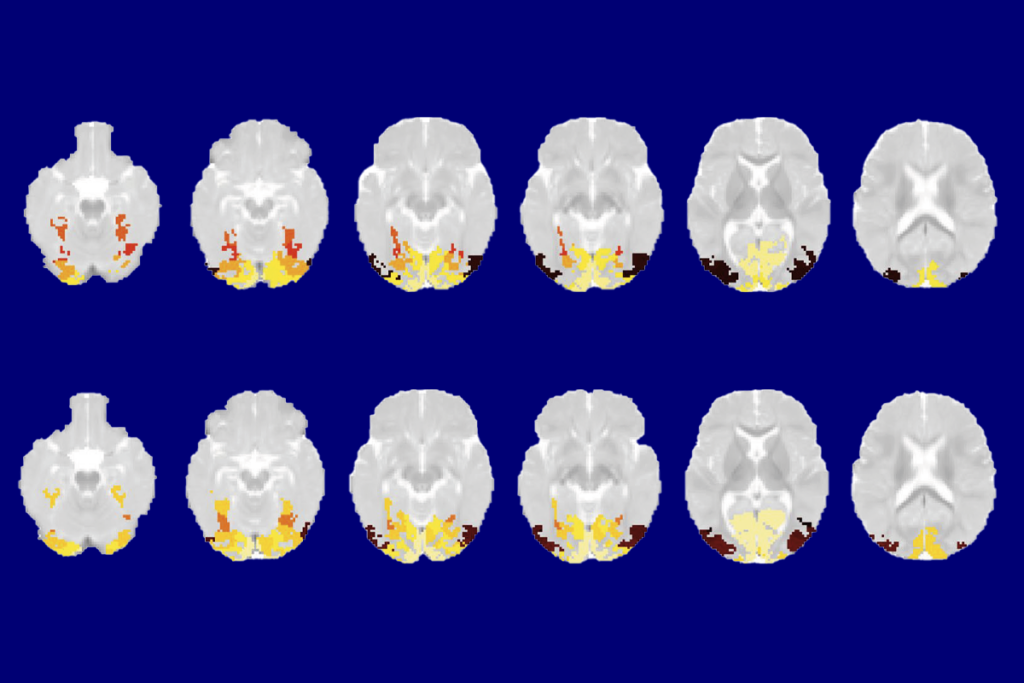
Infant visual system categorizes common objects by 2 months of age
Brain activity patterns in the ventral visual cortex appear to distinguish images across 12 categories, including birds and trees, longitudinal functional MRI scans suggest.
Astrocytes stabilize circuits in adult mouse brain
The glial cells secrete a protein that suppresses plasticity post-development.
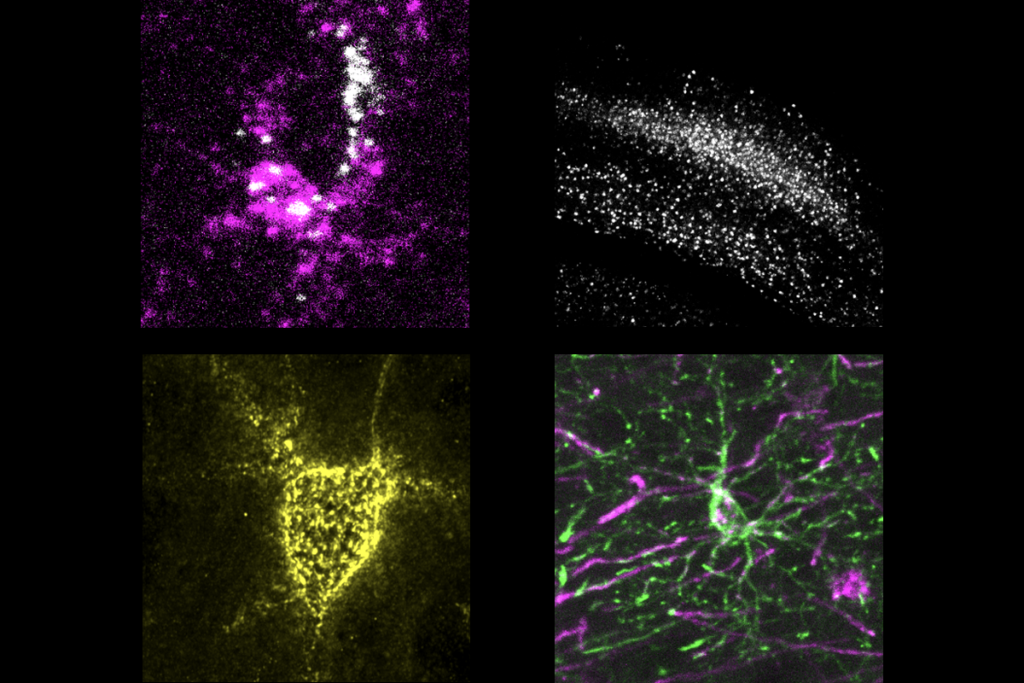
Astrocytes stabilize circuits in adult mouse brain
The glial cells secrete a protein that suppresses plasticity post-development.
Null and Noteworthy: Downstream brain areas read visual cortex signals en masse in mice
The finding contradicts a theory that the regions prioritize neurons that are adept at identifying specific stimuli. Plus, a response to a study that questioned immune memory in astrocytes.
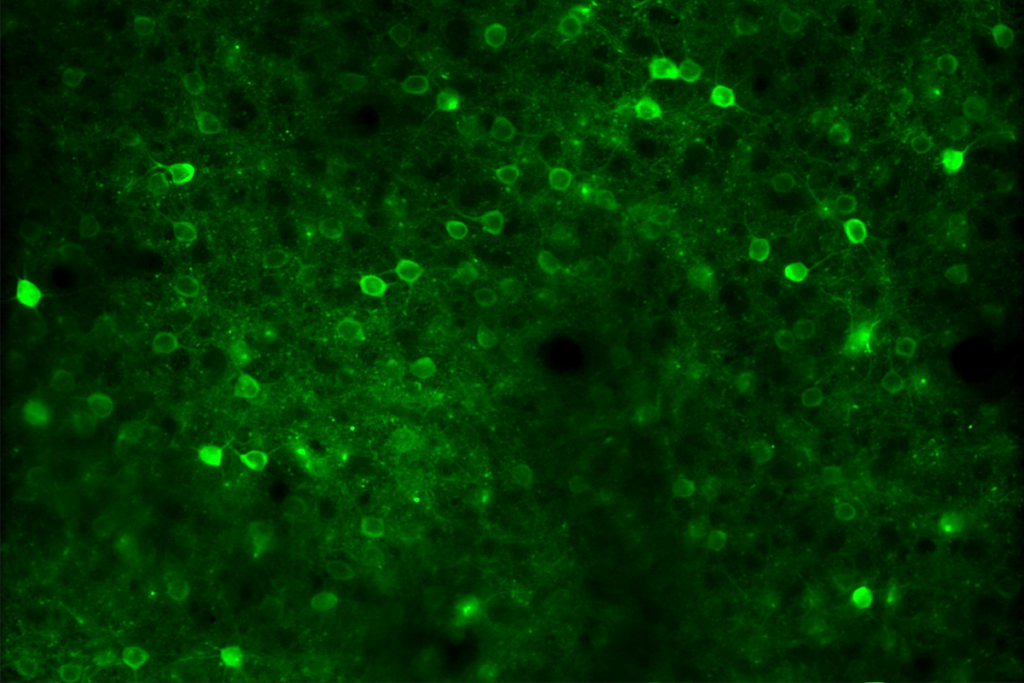
Null and Noteworthy: Downstream brain areas read visual cortex signals en masse in mice
The finding contradicts a theory that the regions prioritize neurons that are adept at identifying specific stimuli. Plus, a response to a study that questioned immune memory in astrocytes.
Rethinking how neural activity sculpts critical periods
New findings on the role of neural activity in developing circuits are challenging our prior notions about the rules that govern critical periods.

Rethinking how neural activity sculpts critical periods
New findings on the role of neural activity in developing circuits are challenging our prior notions about the rules that govern critical periods.
Connectomics 2.0: Simulating the brain
With a complete fly connectome in hand, researchers are taking the next step to model how brain circuits fuel function.
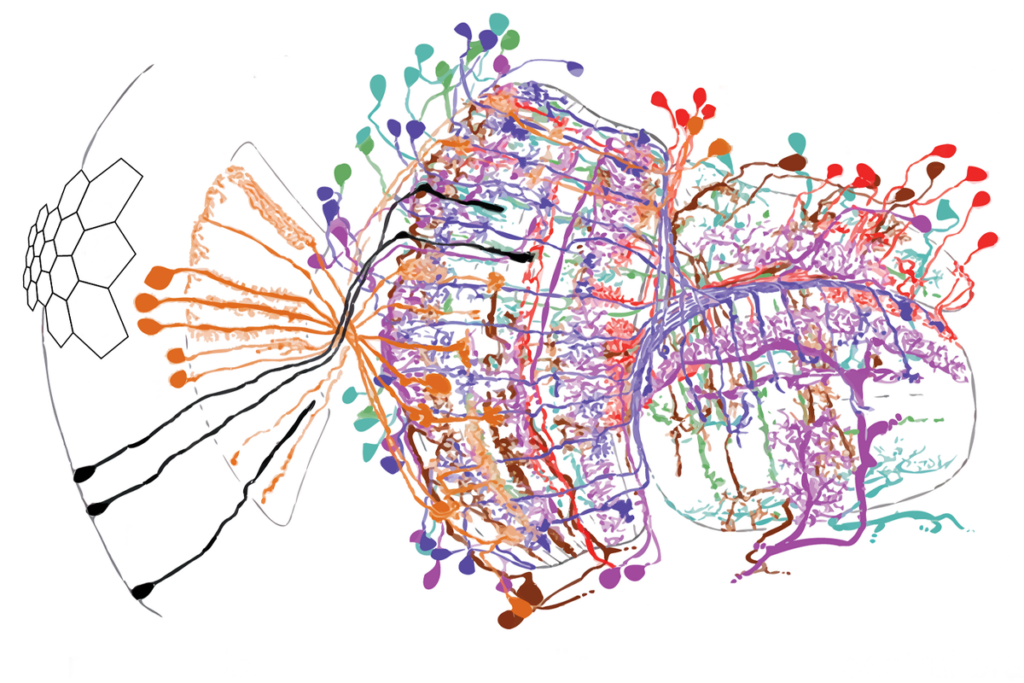
Connectomics 2.0: Simulating the brain
With a complete fly connectome in hand, researchers are taking the next step to model how brain circuits fuel function.
Inhibitory cells work in concert to orchestrate neuronal activity in mouse brain
A cubic millimeter of brain tissue, meticulously sectioned, stained and scrutinized over the past seven years, reveals in stunning detail the role of inhibitory interneurons in brain structure and function.
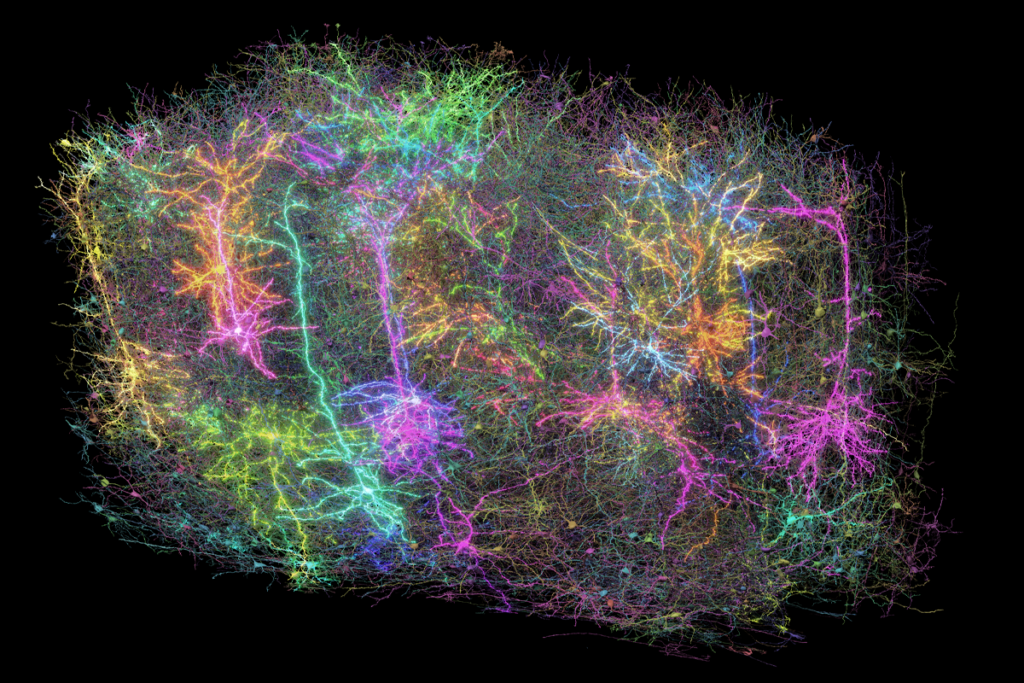
Inhibitory cells work in concert to orchestrate neuronal activity in mouse brain
A cubic millimeter of brain tissue, meticulously sectioned, stained and scrutinized over the past seven years, reveals in stunning detail the role of inhibitory interneurons in brain structure and function.
In memoriam: Yves Frégnac, influential and visionary French neuroscientist
Frégnac, who died on 18 October at the age of 73, built his career by meeting neuroscience’s complexity straight on.

In memoriam: Yves Frégnac, influential and visionary French neuroscientist
Frégnac, who died on 18 October at the age of 73, built his career by meeting neuroscience’s complexity straight on.
This paper changed my life: ‘Spontaneous cortical activity reveals hallmarks of an optimal internal model of the environment,’ from the Fiser Lab
Fiser’s work taught me how to think about grounding computational models in biologically plausible implementations.

This paper changed my life: ‘Spontaneous cortical activity reveals hallmarks of an optimal internal model of the environment,’ from the Fiser Lab
Fiser’s work taught me how to think about grounding computational models in biologically plausible implementations.
Remembering Peter Schiller, principled pioneer of vision research
Schiller, best known for his research on how the superior colliculus controls eye movements, died last month at the age of 92.

Remembering Peter Schiller, principled pioneer of vision research
Schiller, best known for his research on how the superior colliculus controls eye movements, died last month at the age of 92.
Explore more from The Transmitter
Shifting neural code powers speech comprehension
Dynamic coding helps explain how the brain processes multiple features of speech—from the smallest units of sounds to full sentences—simultaneously.

Shifting neural code powers speech comprehension
Dynamic coding helps explain how the brain processes multiple features of speech—from the smallest units of sounds to full sentences—simultaneously.
Astrocytes orchestrate oxytocin’s social effects in mice
The cells amplify oxytocin—and may be responsible for sex differences in social behavior, two preprints find.

Astrocytes orchestrate oxytocin’s social effects in mice
The cells amplify oxytocin—and may be responsible for sex differences in social behavior, two preprints find.
Neuro’s ark: Spying on the secret sensory world of ticks
Carola Städele, a self-proclaimed “tick magnet,” studies the arachnids’ sensory neurobiology—in other words, how these tiny parasites zero in on their next meal.

Neuro’s ark: Spying on the secret sensory world of ticks
Carola Städele, a self-proclaimed “tick magnet,” studies the arachnids’ sensory neurobiology—in other words, how these tiny parasites zero in on their next meal.